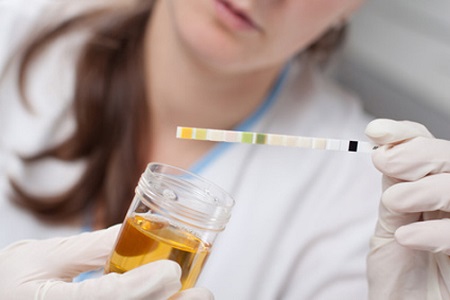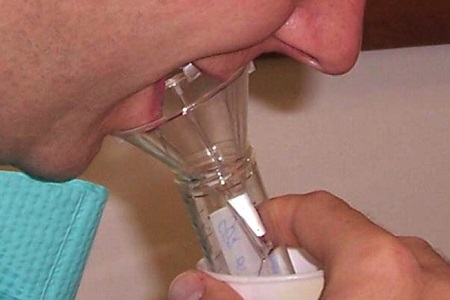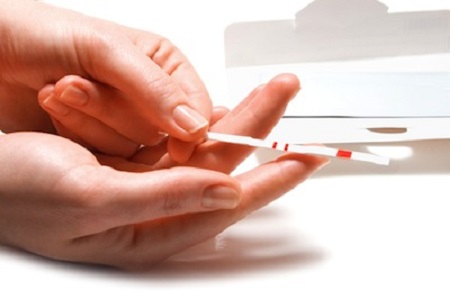We usually think of hormones as those related to our being, like estrogen and progesterone (female hormones) and testosterone (male hormone). But we have more than a few of these naturally occurring chemicals that help maintain balance in the body to achieve optimal health and function. Here is some information on how to check hormone levels when you need to make sure your body is in proper balance.

How to Check Hormone Levels
Urine Test
Accuracy
For how to check hormone levels, urine test is a well-established reliable method, especially in research. Furthermore, using a 24-hour urine sample is the most accurate and stable indicator of daily output that is not affected by hourly fluctuations in hormone levels, unlike salivary or serum hormone measurements.
Benefits
In clinical practice, measuring hormones from urine samples is less common than from saliva or serum, but it is a very common method used in research. A 24-hour urine sample is preferred for evaluating hormones that are produced at night (such as growth hormone and melatonin). It is also the most reliable way and economical method of assessing metabolites of steroid hormones.
Blood Test
Accuracy
For how to check hormone levels, blood or serum test provides a direct way of measuring hormone levels in your circulation. Hormone values are usually reported as “total”, which includes both your free hormones and bound hormones. Blood tests are relatively accurate within broad reference ranges. These hormone measurements offer a ‘snapshot’ assessment of your hormones, which may fluctuate during the day.
Benefits
Blood testing of hormones is an accepted conventional standard for measuring hormone levels. It is a relatively simple method and is ideal for testing FSH, LH, fasting insulin, prolactin, thyroid hormones, thyroid antibodies, sex hormone binding globulin (SHBG) and cortisol binding globulin (CBG). However, except for testosterone, serum testing has limited usefulness for assessing sex hormones.
Saliva Test
Accuracy
Saliva tests may not have accurate results in elderly patients who have limited saliva output. Saliva tests may show your hormone is higher than normal levels when you are using hormone replacement. Single saliva tests provide a ‘snapshot’ assessment of hormones that fluctuate in a 24-hour period.
Benefits
For how to check hormone levels, saliva test is a simple non-invasive method. It is useful for monitoring cortisol levels according to your circadian rhythm. It can also be useful for assessing monthly cyclical estrogen and progesterone output in women.
How to collect saliva
You should collect saliva within 30 minutes after waking up and prior to eating or drinking, exercising and brushing or flossing your teeth. Read more on the Collection Instructions provided in your collection kit. To get accurate results, make sure your collection all tubes are filled with at least ½ to ¾ full, excluding the bubbles.
FSH Test
Accuracy
FSH levels fluctuate widely 10 years before menopause, so an FSH test does not provide an accurate measure of sex hormone production or an indication of the reproductive status of most women.
To conduct FSH test properly, blood must be drawn 3 times every 60 minutes beginning exactly at 8 am. FSH measurements are based on the average of these 3 levels.
Benefits
Symptoms of hormonal imbalance are similar to many other conditions, and its detection can be difficult without the proper tests. Early detection of hormone imbalance helps you take steps to correct it, relieve symptoms, and prevent progression of disease.
Recommended Timing for Hormone Check
Men can collect specimens for a hormone check-up at any time of the month.
Women who do not menstruate because of abnormal absence of menses during their reproductive age (amenorrhea) and those who have surgical removed their uterus or have endometrial ablation (destruction of their uterine lining) can have their hormone levels checked anytime.
Women with regular menstrual cycles must collect specimen samples on the 19th, 20th or 21st day after the 1st day of having period (day 1).
Women who have irregular menstrual cycles can collect specimens any time that they are not experiencing period.
Some women have some regularity in their periods but the lengths of their cycles are not typical. They may be advised to follow these guidelines for collection: Long cycles (e.g. 35 days) – test may be done at day 19 or up to 5 days prior to the date that the period is expected. Short cycles (e.g. 14 days) – test may be done two days prior to expected bleeding.
In order to get an accurate test, you may be required to fast, observe some dietary restrictions, limit physical activity, or reduce stress levels before taking these tests.
If you are taking any medications, supplements, or herbs, tell your doctor about it. Inform him if you have had recent procedures done such as nuclear scanning.








View All Comments /Add Comment